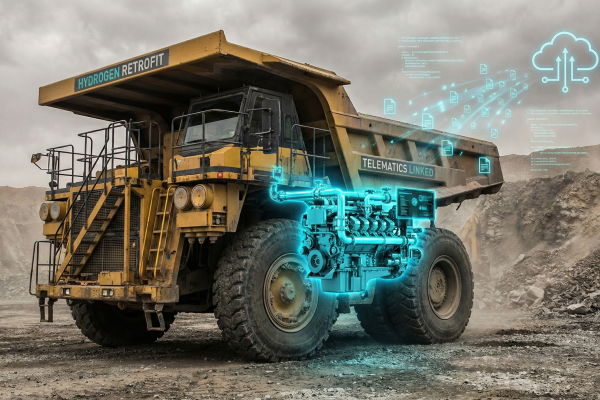September 16th, 2022 | 11:52 CEST
Altech Advanced Materials, Tesla, BYD - German engineering before Germany as a business location
Germany is the land of engineers, and German engineering is known worldwide for its outstanding quality. Altech Advanced Materials, for example, has launched a joint venture with the Fraunhofer Institute IKTS to commercialize even more powerful batteries than before. CERENERGY® batteries can be used for renewable energy storage as well as for industrial and private household applications. They are resource efficient and provide a reliable energy supply. German e-car enthusiasts can also look forward to the launch of three BYD models in Germany. And competitor Tesla is moving from Germany back to the US - President Biden has created a government lure...
time to read: 4 minutes
|
Author:
Juliane Zielonka
ISIN:
ALTECH ADV.MAT. NA O.N. | DE000A2LQUJ6 , TESLA INC. DL -_001 | US88160R1014 , BYD CO. LTD H YC 1 | CNE100000296
Table of contents:

"[...] Silumina Anodes® is a ceramic-coated graphite/silicon anode composite material that we plan to produce in Schwarze Pumpe, Saxony. Here, we aim to supply manufacturers of batteries for e-cars with an application-ready drop-in technology that is low-cost, high-performance and safe. [...]" Uwe Ahrens, Direktor, Altech Advanced Materials AG
Author
Juliane Zielonka
Born in Bielefeld, she studied German, English and psychology. The emergence of the Internet in the early '90s led her from university to training in graphic design and marketing communications. After years of agency work in corporate branding, she switched to publishing and learned her editorial craft at Hubert Burda Media.
Tag cloud
Shares cloud
Altech Advanced Materials in the battery fast lane with Fraunhofer joint venture
Performance and range are the key factors in electromobility. For EVs to become widespread, robust batteries and widely networked charging stations are needed. An innovative approach to outstanding battery performance is offered by the Company Altech Advanced Materials. The Heidelberg-based company is developing a technology that makes it possible to make conventional lithium-ion batteries last longer and perform better than previous models.
The process developed by Altech Advanced Materials uses aluminum oxide-coated graphite. It can extend a battery's charging time by up to 30%. The low-cost process is quick and easy to commercialize.
Altech Advanced Materials has now entered into a joint venture with Fraunhofer IKTS to produce solid-state batteries. The Fraunhofer Institute for Ceramic Technologies and Systems IKTS, based in Dresden and Hermsdorf, conducts applied research and development in the field of advanced ceramics and materials diagnostics. Together, the two companies will establish Altech Batteries GmbH, in which Altech Advanced Materials will hold a 75% stake. The joint venture will build a new production facility for CERENERGY® batteries. CERENERGY® batteries use high-purity alumina for their ceramic solid-state electrolyte and common salt as the cathode medium instead of lithium. The first product line of the plant, which is expected to produce 100 MWh annually, is being built at the Schwarze Pumpe site in Saxony, Germany.
The CERENERGY® batteries are resource-efficient and suitable for renewable energy storage and industrial and private household applications. They can also be used as energy storage devices to provide a buffer between power generation and consumption.
Anyone who wants to find out more can do so directly from board member Uwe Ahrens. He will be among the speakers at the International Investment Forum (IIF). Participation in the digital event is free of charge by registering via Zoom.
Tesla green heath factory on hold? The US entices with e-mobile subsidies
Some 2,000 jobs are on the line in Grünheide near Berlin. According to a leaked report in the Wall Street Journal, Tesla wants to change its battery strategy to benefit from US tax incentives. That does not mean insolvency for the Grünheide site; they would simply not produce.
In August, US President Joe Biden signed into law the new Inflation Reduction Act, which provides billions in tax incentives for e-car makers. E-vehicle buyers are eligible for a USD 7,500 per-purchase tax credit if the cars' batteries meet certain criteria. Last year, Elon Musk wholeheartedly rejected government subsidies from the German government totaling EUR 1.14 billion knocked out. With the indication that he could achieve this sum much faster on the capital market.
Somewhat disgruntled by the newly gained US home advantage, Brandenburg Ministry spokeswoman Irene Beringer responded in a written statement: "It seems possible that Tesla will reprioritize individual process steps in the plants, but that the Grünheide site will be retained in structure and with its jobs." Construction of the battery factory is already advanced. But given energy prices, Germany is not currently an attractive location for fast-calculating entrepreneurs like Elon Musk. The automaker may benefit from clauses in the US Inflation Control Act that it can take advantage of if it increases its domestic battery production. Tesla shares bounced back this week from EUR 290 to EUR 303.10..
BYD - Models available in Germany, the group is threatened with lockdowns
Now, three Chinese electric car manufacturer models are available in Germany. Germany will see the launch of the SUV Tang, the electric sedan Han and the Atto. All cars are purely electric and convince with their technology. The Atto model with a 60.5-kWh battery starts from EUR 42,245. The BYD Tang comes with an 86.4-kWh battery and is available from EUR 71,400. The BYD Han with an 85.4-kWh battery stands at EUR 70,805.
BYD announced record sales of 174,915 electric vehicles and plug-in hybrids (PHEVs) for the month of August. That is 185% more than in the same month last year and 7.6% more than in July (162,530). Passenger car sales increased by 173,977 units, with all-electric vehicle sales up 172% to 82,678. PHEV sales posted a 203% increase to 91,299 units.
CEO Wang Chuanfu points out that COVID production restrictions and the drought in August had some impact on production. Recently, China has sealed off Chengdu, the capital of Sichuan province with a population of 21 million, because of new COVID cases. The city of Shenzhen, where BYD is headquartered, may also face another lockdown. But that does little to dampen demand for BYD models. According to group data, production capacity is over 200,000pcs per month, and the order backlog is more than 700,000pcs. Investors should keep an eye on the possible delays due to the Zero-COVID strategy.
The COVID pandemic is not quite over yet. China, in particular, is causing significant downtime in production chains with new government-imposed lockdowns, which could also affect e-car maker BYD and its sales. Elon Musk also seems to be answering the government's call. A new law passed by US President Joe Biden supports electric battery manufacturers with subsidies in their own country. As a result, things are currently looking anything but rosy for the German Tesla Gigafactory at the Grünheide site near Berlin. The plant may not even start producing. German engineering is still in demand: for example, Altech Advanced Materials is launching a joint venture with Fraunhofer's IKTS division specifically for the production of energy-efficient batteries. The high-performance CERENERGY® batteries are an indispensable component of the charging infrastructure for e-mobility and are therefore future-oriented.
Conflict of interest
Pursuant to §85 of the German Securities Trading Act (WpHG), we point out that Apaton Finance GmbH as well as partners, authors or employees of Apaton Finance GmbH (hereinafter referred to as "Relevant Persons") may hold shares or other financial instruments of the aforementioned companies in the future or may bet on rising or falling prices and thus a conflict of interest may arise in the future. The Relevant Persons reserve the right to buy or sell shares or other financial instruments of the Company at any time (hereinafter each a "Transaction"). Transactions may, under certain circumstances, influence the respective price of the shares or other financial instruments of the Company.
In addition, Apaton Finance GmbH is active in the context of the preparation and publication of the reporting in paid contractual relationships.
For this reason, there is a concrete conflict of interest.
The above information on existing conflicts of interest applies to all types and forms of publication used by Apaton Finance GmbH for publications on companies.
Risk notice
Apaton Finance GmbH offers editors, agencies and companies the opportunity to publish commentaries, interviews, summaries, news and the like on news.financial. These contents are exclusively for the information of the readers and do not represent any call to action or recommendations, neither explicitly nor implicitly they are to be understood as an assurance of possible price developments. The contents do not replace individual expert investment advice and do not constitute an offer to sell the discussed share(s) or other financial instruments, nor an invitation to buy or sell such.
The content is expressly not a financial analysis, but a journalistic or advertising text. Readers or users who make investment decisions or carry out transactions on the basis of the information provided here do so entirely at their own risk. No contractual relationship is established between Apaton Finance GmbH and its readers or the users of its offers, as our information only refers to the company and not to the investment decision of the reader or user.
The acquisition of financial instruments involves high risks, which can lead to the total loss of the invested capital. The information published by Apaton Finance GmbH and its authors is based on careful research. Nevertheless, no liability is assumed for financial losses or a content-related guarantee for the topicality, correctness, appropriateness and completeness of the content provided here. Please also note our Terms of use.




